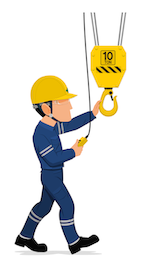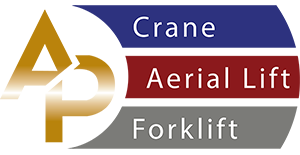Get both written and practical exams and get a crane operator certification, for the following crane operator jobs throughout the United States:
Providing An Accredited Crane Operator Certification With Local Schools Located Nationwide
Mobile Crane Operator Certification
Certification for those who operate lattice boom or telescopic boom mobile cranes.
Tower Crane Operator Certification
Certification for those who operate hammerhead, luffing jib, or self-erecting tower cranes.
Overhead Crane Operator Certification
Certification for those who operate overhead or bridge or gantry cranes.
Articulating Crane Operator Certification
Certification for those who operate articulating boom cranes or loaders (also known as “material loaders” or “wallboard cranes”).
Qualified Signalpersons
Certification for those who direct the crane operator during a lift operation.
Qualified Riggers
Certification for those who prepare loads for safe lifting; Rigger Level I certification indicates that certificates are considered qualified for most rigging work, while Rigger Level II certification shows that they can rig non-routine jobs that require independent thinking without supervision.

We provide the most effective crane operator certification training courses that will be customized to meet your specific needs at your worksite. Our training site is known for its quality standards in the industry and is dedicated to providing a real world experience.
Enroll TodayTraining Topics
- How to become an accredited crane operator testing organization.
- Indiana rigging and signal classes.
- Online crane training.
- Tower crane operator certification osha.
- Qualified rigger training Texas.
- Riggers training Williston, ND.
- Online rigging training.
Mobile crane operator certification and training is required nationwide. The new law was published in the Federal Register on August 9, 2010, and pushed back to take effect November 9, 2017. crane operators have 1 year to comply with this new ruling. Which deadline will be November 10, 2018. The new ruling applies to operators using a crane on a construction site (see CFR1926.1427) cranes and derricks in construction.
The purpose of qualified rigger program is to set standards for measuring the knowledge and proficiency required for safe rigging practices.
Based on extensive discussions with representatives from all segments of business and industry who recognize the impact of safety issues, has identified the following potential benefits of a qualified rigger:
- Fewer accidents, injuries, and fatalities
- Reduced risk of loss
- Assurance of riggers abilities
- Less property damages
- Improved safety records
- The enhanced public image of riggerss
A signal person must:
Know and understand the type of signals used; Be competent in the application of the type of signals used; Have a basic understanding of equipment operation and limitations, including the crane dynamics involved in swinging and stopping loads and boom deflection from hoisting loads; and Know and understand the relevant requirements of the provisions of the standard relating to signals.
When using any type of heavy machinery it is imperative that safety guidelines are followed. The easiest way to make sure you are compliant with all rules and regulations is to have a checklist. The OSHA (Occupational Safety and Health Administration) provides strict guidelines for workplace safety. There are a few different types of cranes (examples include overhead and mobile), and inspection rules are generally the same for all of them.
Call us to begin! 888 501-1355

